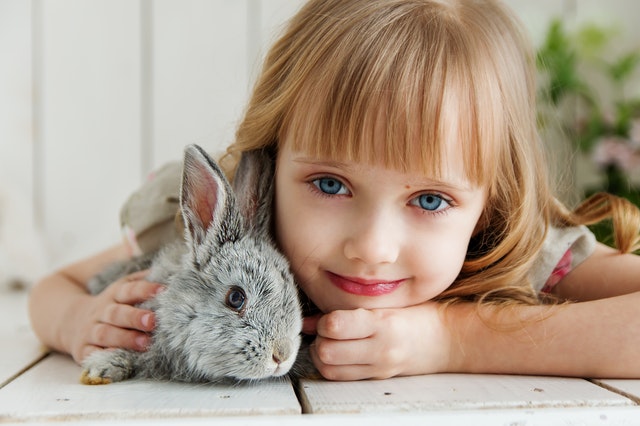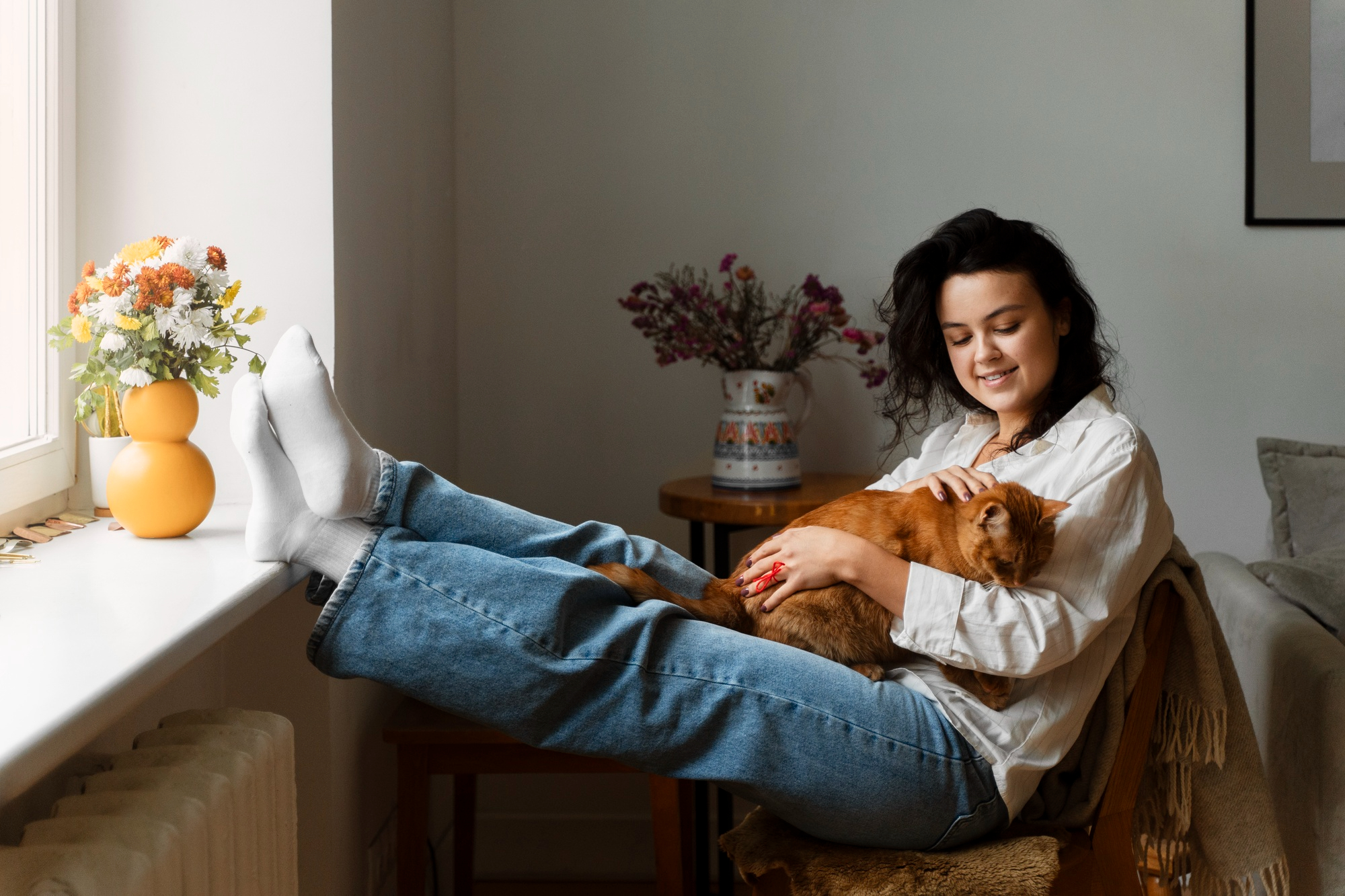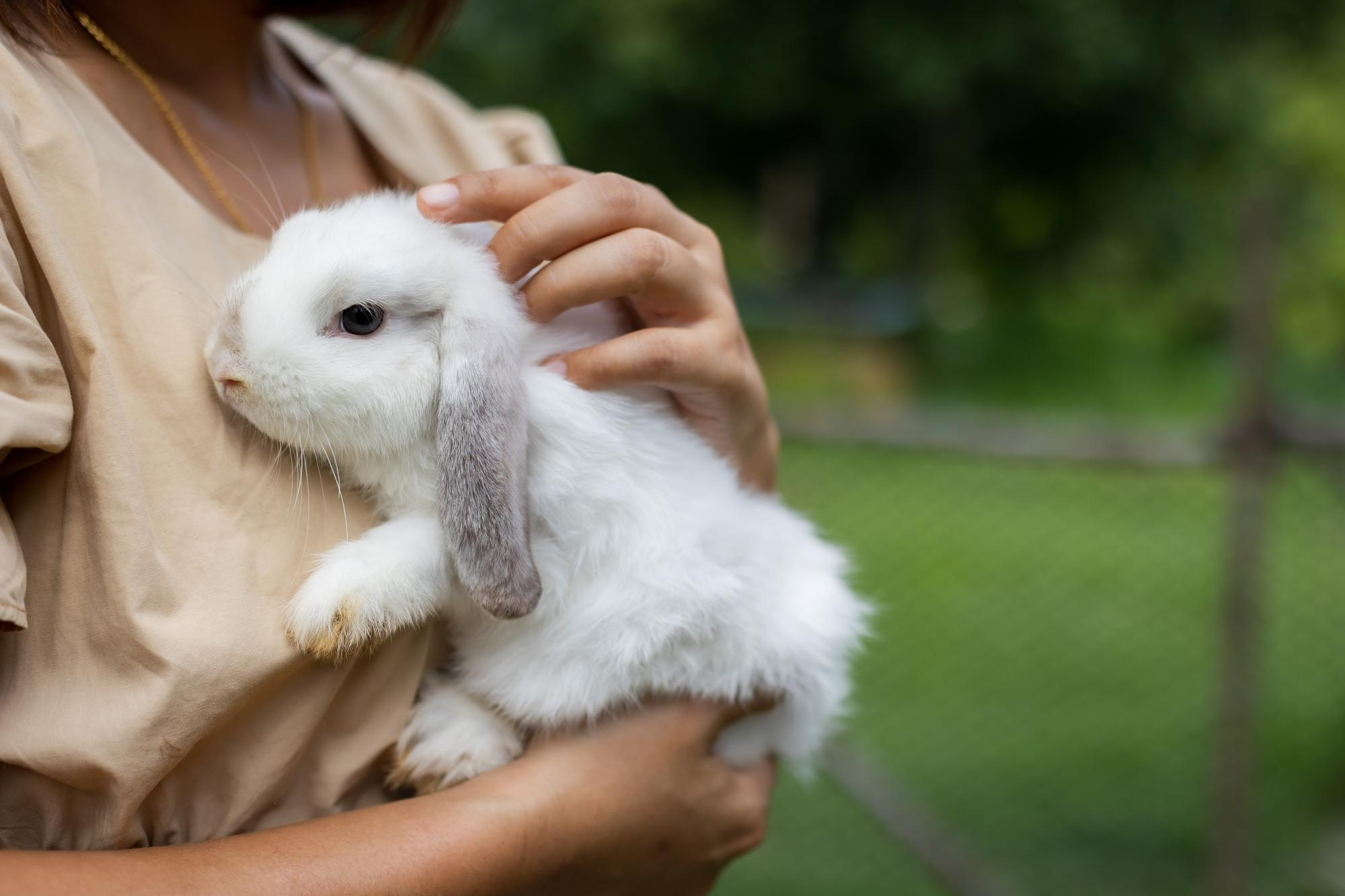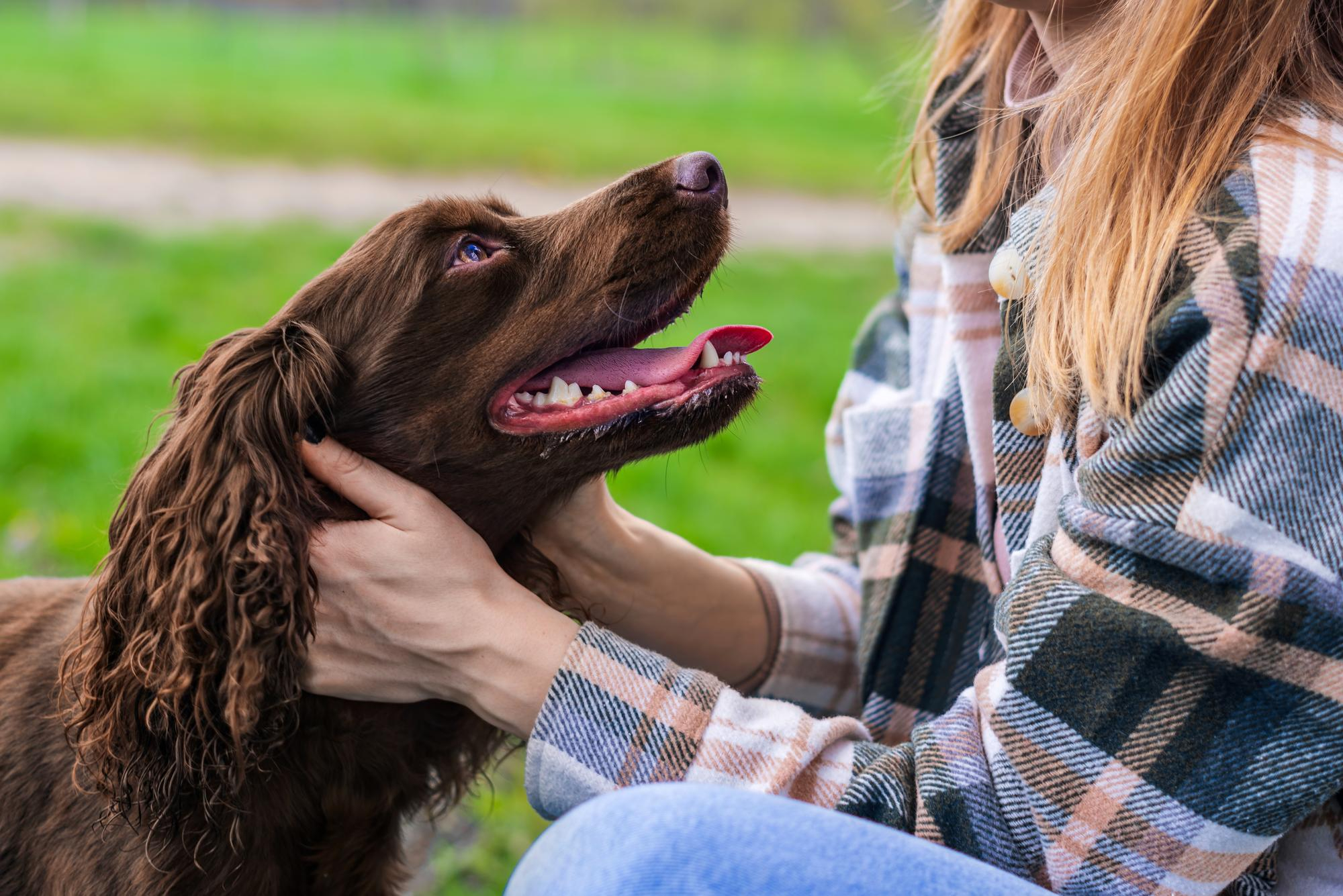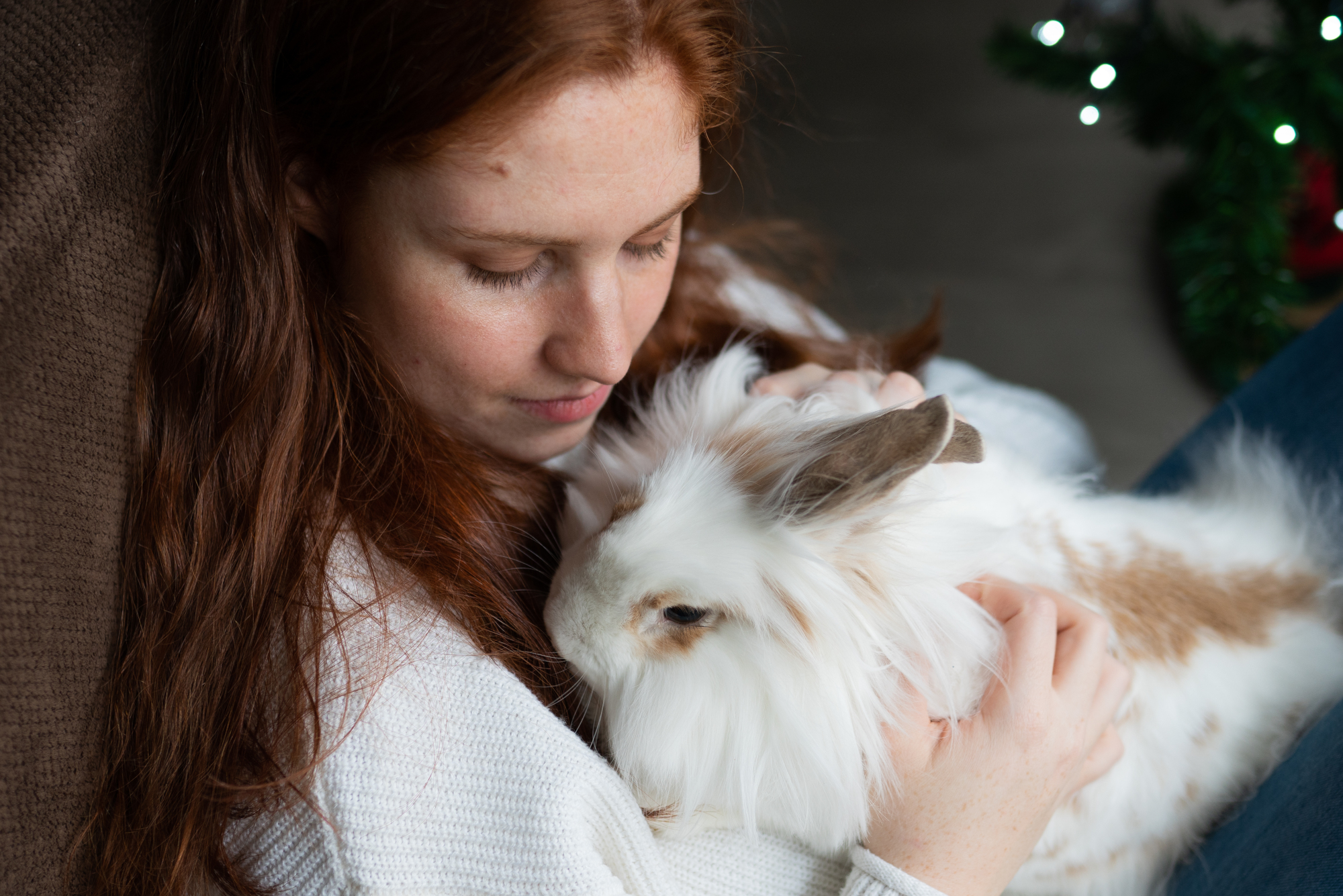The Burnaby BC area has a mild climate with even temperatures that allow rabbits to live outside all year round. However, it is definitely better if you own a pet rabbit to raise them indoors. Although it is possible to keep your pet rabbit outside as long as you are mindful of the dangers, most pet experts agree that raising rabbits indoors is the safest and healthiest option.
The Pros for Raising Rabbits Indoors
- Safe from Predators – Your rabbit will feel much more secure if he or she lives indoors because predators will be out of sight and out of mind, sound, and smell. Unless there is a danger from other pets—in which case, they must be kept away—indoor bunnies can thrive happily and have plenty of freedom even in a very small house or apartment.
- Loneliness is Less Likely – Rabbits make adorable family pets and are intelligent and inquisitive by nature. Loneliness can be a serious problem for these little animals, and a family member must to be able to play and interact with your pet rabbit daily, which is much more convenient if a bunny is housed indoors. If you have a busy life and you can’t manage regular playtime even for an indoor pet, you should acquire a second rabbit so they can keep each other company.
- Weather is Never a Problem – No matter how cold, wet, damp, or stormy it is outside, you and your pet rabbit will be comfy and cozy inside. Your mind will be at ease even if the weather suddenly and unexpectedly changes and you are not at home. You don’t have to worry about racing home to rescue your little rabbit from the nasty weather while he or she is in an outdoor hutch.
- Housing Arrangements Can be Flexible – Your pet needs a suitable caged home indoors that is big enough to stretch and move around in easily, including room for lots of hay, food, water, and chew toys. In addition, you need an area for your bunny to have lots of exercise. When you litter-train your pet, he or she can have a whole room or part of the house where it is safe and fun to roam around. It is a good idea to put your bunny in the cage when you are not at home and when you go to bed at night, so that you can relax, knowing your little pet is perfectly secure and happy.
- Health Problem Signs are More Obvious – If your rabbit lives indoors with you, it will be easy to notice if there are symptoms of a health problem developing. It’s more difficult to notice symptoms if your pet lives outside and you have less interaction with them.
The Cons for Raising Rabbits Indoors
- Other Pets Can Be a Problem – Other pets in your family may pose a danger to your bunny. If you have, say, a hunting or herding breed of dog such as a Yorkshire Terrier, you will have to make special arrangements to keep them separated and the solution can’t be to keep your bunny locked in a cage all the time. That would be unkind.
- Furniture May Entice a Bunny to Chew and Dig – Rabbits love to chew, dig, and burrow and it is important for owners to provide the opportunity for their little pets to enjoy these activities without causing harm. You must rabbit-proof your home with the same care that you baby-proof one.
- Secure electric cords out of reach, protect the legs and undersides of furniture, and provide lots of chew toys: blocks of wood, commercial rabbit toys, paper towel tubes, and towels or old shirts that can be used for tunneling.
- Tape boxes together with openings through which rabbits can squeeze, or plush cat tunnels, wicker baskets, or sisal mats that can be chewed and torn apart, and provide a variety of items to keep your bunny busy and happy. Block off areas that are unsafe for your pet to go or where there are items that could be damaged by chewing.
The Pros for Raising Rabbits Outside
- Outside Was Once a Rabbit’s Natural Habitat – Today, a rabbit can survive even if the outdoors is not the natural habitat of domestic rabbits. They can adapt to living outside as long as a good home is provided and the owner keeps a close eye on the situation. Because your pet needs an exercise area that is three times the size of a hutch, it is usually easier to find a good location like this outside.
- Bunny has the Freedom to Chew and Dig – Most outdoor items won’t be harmed by a chewing, digging rabbit who can engage in these activities to his or her heart’s content. You must secure the area, of course, and take precautions to keep your rabbit from tunneling under a fence and escaping. If you are careful, your bunny will enjoy the freedom of living outside, especially if another rabbit is there for companionship.
The Cons for Raising Rabbits Outside
- Times Have Changed – Domestic rabbits, unlike the wild rabbits people remember from the olden days, don’t thrive as well or for as long if housed outside, nor are they equipped to survive on their own. If kept outside, a bunny now needs a very secure enclosure, which includes a hutch where your pet can hide if feeling threatened and can be protected from the elements when the weather changes.
- Predator Safety Concerns – Rabbits are prey to animals like dogs, cats, raccoons, foxes, hawks, and eagles. Even if he or she is safely tucked away in a hutch, a rabbit can be so frightened at the sight, sound, or smell of a nearby enemy, he or she can suffer a heart attack.
- Loneliness is More Likely – Loneliness can be a serious problem for rabbits as they are social animals. If a family member can’t play and interact with your little pet daily, which is probably less convenient if he or she is housed outside, your bunny will become very unhappy fast.
- Weather Can be a Serious Problem – Rabbits do not handle extreme temperatures or stormy weather at all well, and accommodations that adapt to all weather conditions may be difficult to find, build, or arrange.
- Vegetation Must be Constantly Monitored for Safety – Rabbits will munch on just about anything, and you have to keep a close eye on what is growing in your bunny’s play area. See to it that all toxic plants that may start growing in the yard are quickly removed. Make sure you know and can identify all the plants that must be ruthlessly dug up before your bunny finds them first.
How Do You Make Your Decision?
You may have heard the argument that rabbits can be raised outside because they have lived outside in hutches for many generations, and wild rabbits still safely live outside today. However, that is not a realistic assessment of the situation because:
- Wild Rabbits are a Different Species Than Domestic – Domestic rabbits are not the same animals as wild rabbits. Wild rabbits are smaller, they grow thicker coats, have bigger feet, can run faster, and are better equipped to deal with and hide from their natural enemies. If domestic rabbits become lost outdoors, they cannot survive for long because they don’t have the instincts and traits that allow them to live in the wild.
- Rabbits Used to be Kept Outdoors Only Briefly – Outdoor rabbits were generally kept in hutches and raised as food for only a matter of months. Domestic rabbits are kept as pets for many years.
This is why, overall, raising a rabbit indoors is the best choice you can make for your pet rabbit. However, if you don’t have a suitable area indoors, and you have the space and the inclination to take all the special precautions that are required to raise a rabbit outside, it can be done—but you must be very, very careful.
Creative Commons Attribution: Permission is granted to repost this article in its entirety with credit to Hastings Veterinary Hospital and a clickable link back to this page.

